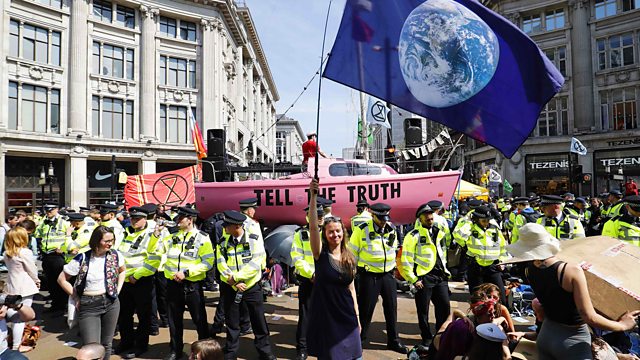
Protest
After the dramatic impact of Extinction Rebellion this Easter, Roy Jenkins and guests discuss what it means to protest.
The Extinction Rebellion climate change actions this Easter saw more than a thousand people arrested in central London. But protest is rarely out of the news, with recent marches for and against Brexit; and local demonstrations such as those against the closure of a school, a maternity unit or a leisure centre; as well as continuing efforts to protect the Welsh language.
Wales has a long history of protest: Chartists, suffragettes, peace and civil rights campaigners of every kind have taken to the streets and sometimes made huge sacrifices for causes they’ve held dear.
But how effective is it? What are the risks? And what is the particular responsibility of people with a religious faith?
Joining Roy to discuss this are: Rachie Ross, self-described eco-theologian and spokesperson for Christian Climate Action who’s been highly involved in the Extinction Rebellion London protests; Menna Machreth, former chair of Cymdeithan yr Iaith Gymraeg, the Welsh Language Society, and currently mission coordinator for the Baptist Union of Wales; Clive Wolfendale, Former Deputy Chief constable of North Wales Police, now chief executive officer of CAIS, which aims to empower change for people struggling with a range of social challenges; and Aled Eirug, a former head of news and current affairs at Βι¶ΉΤΌΕΔ Wales, author of a recent book about conscientious objectors.
Last on
More episodes
Previous
Broadcast
- Sun 5 May 2019 09:00Βι¶ΉΤΌΕΔ Radio Wales
Podcast
-
![]()
All Things Considered
Religious affairs programme, tackling thorny issues in a thought-provoking manner

